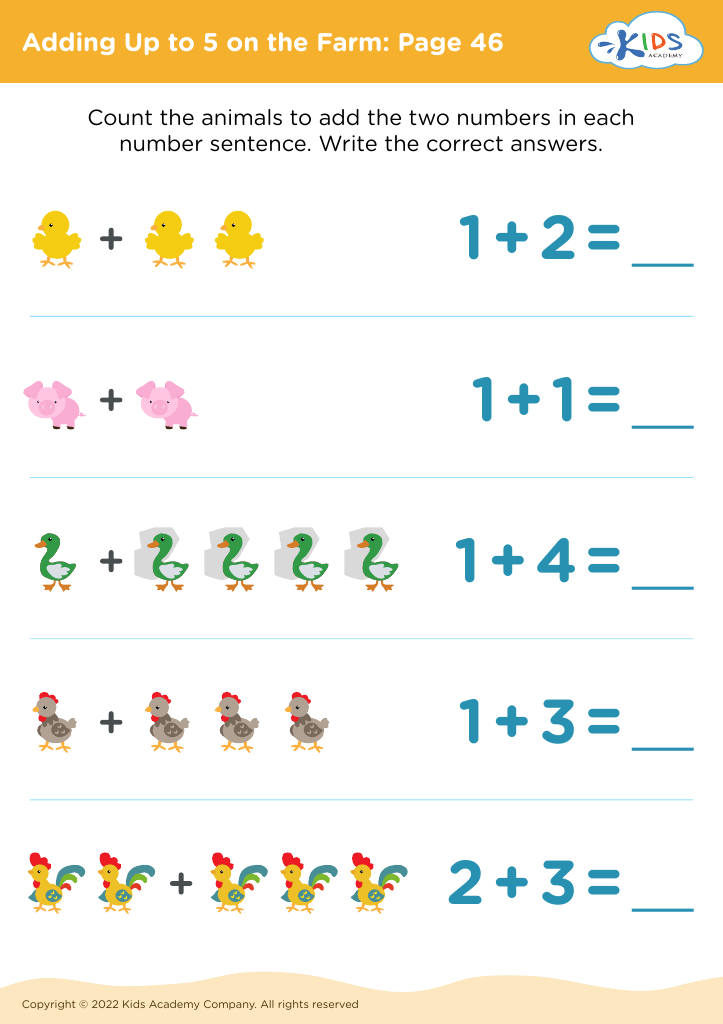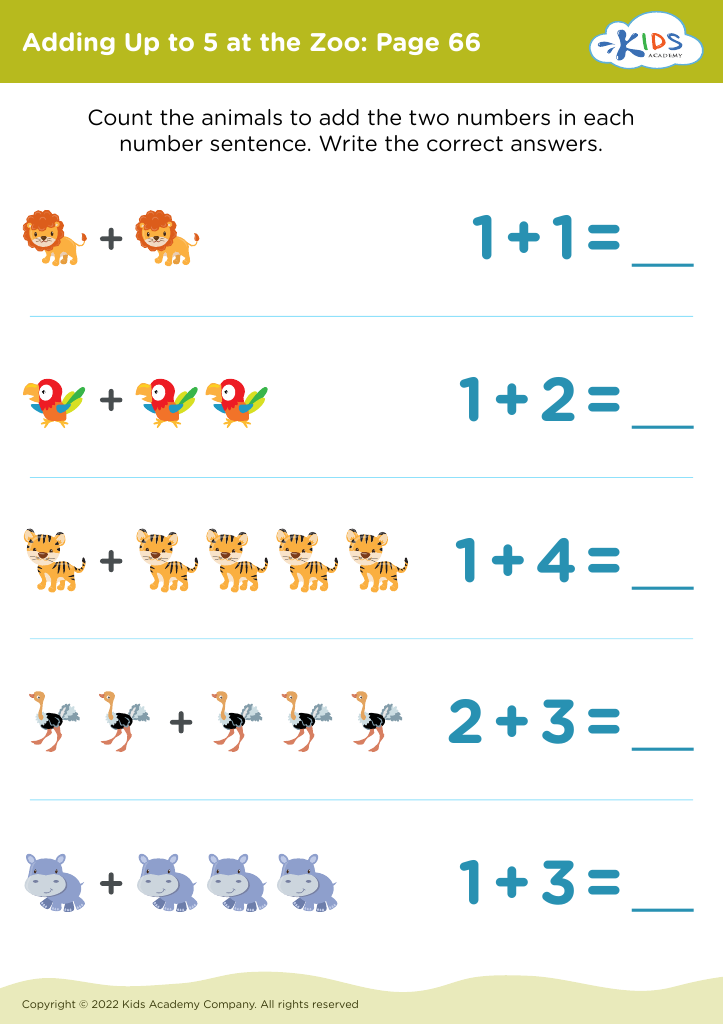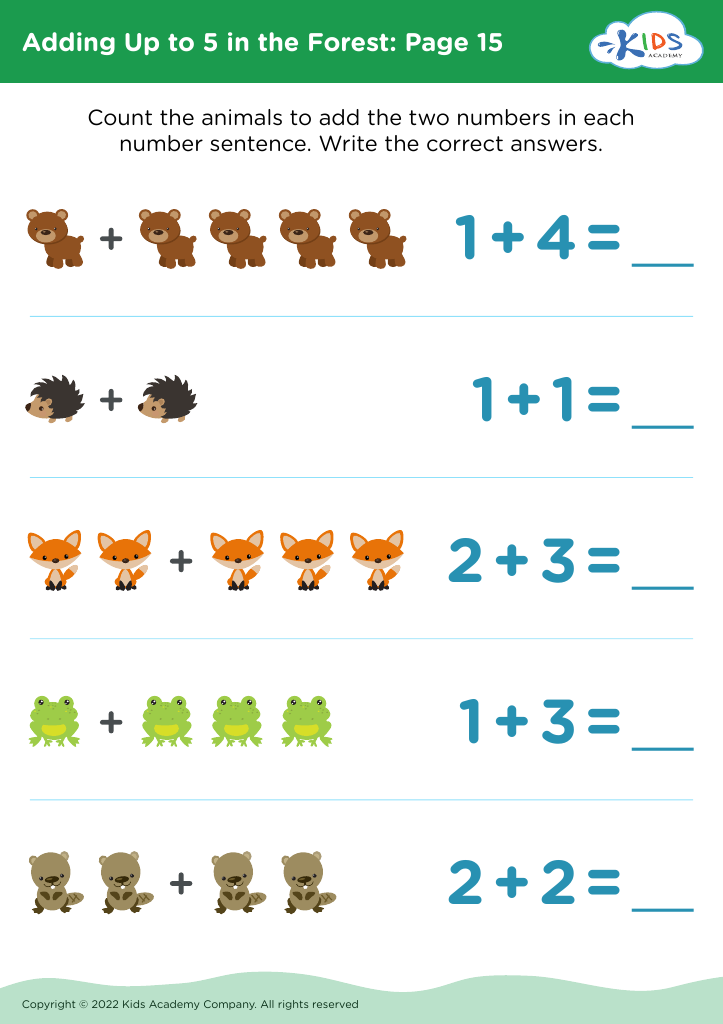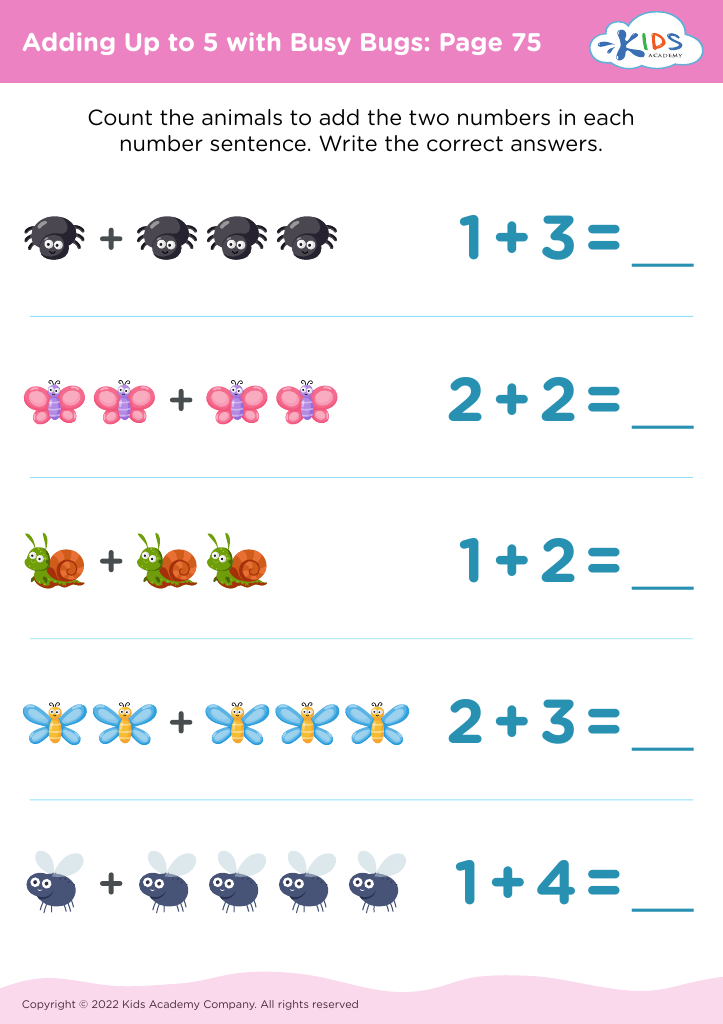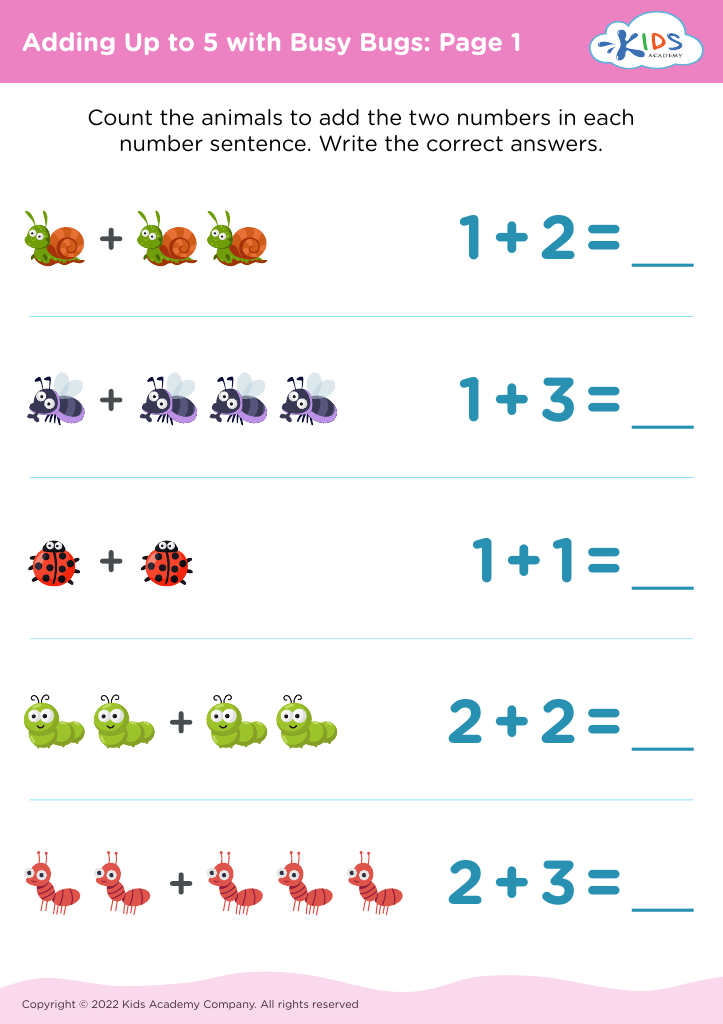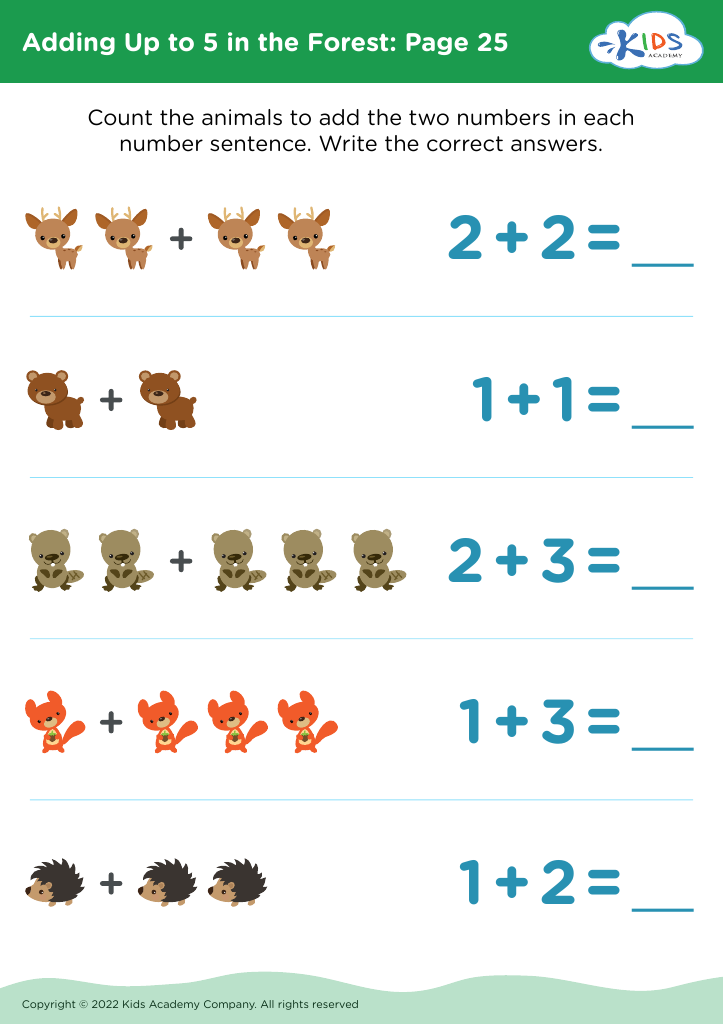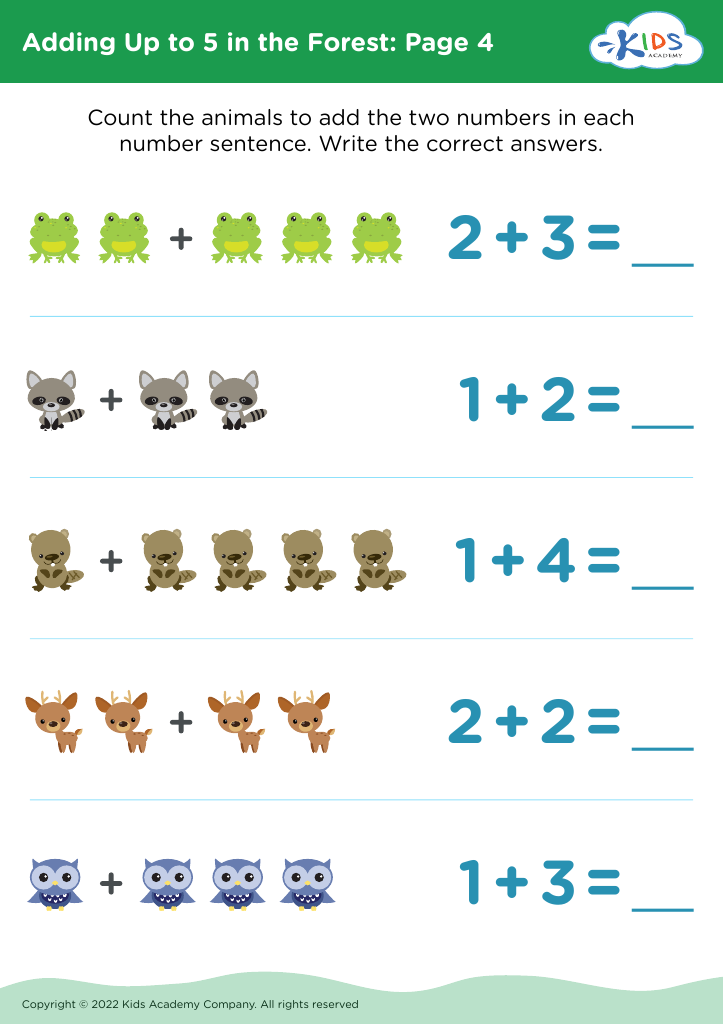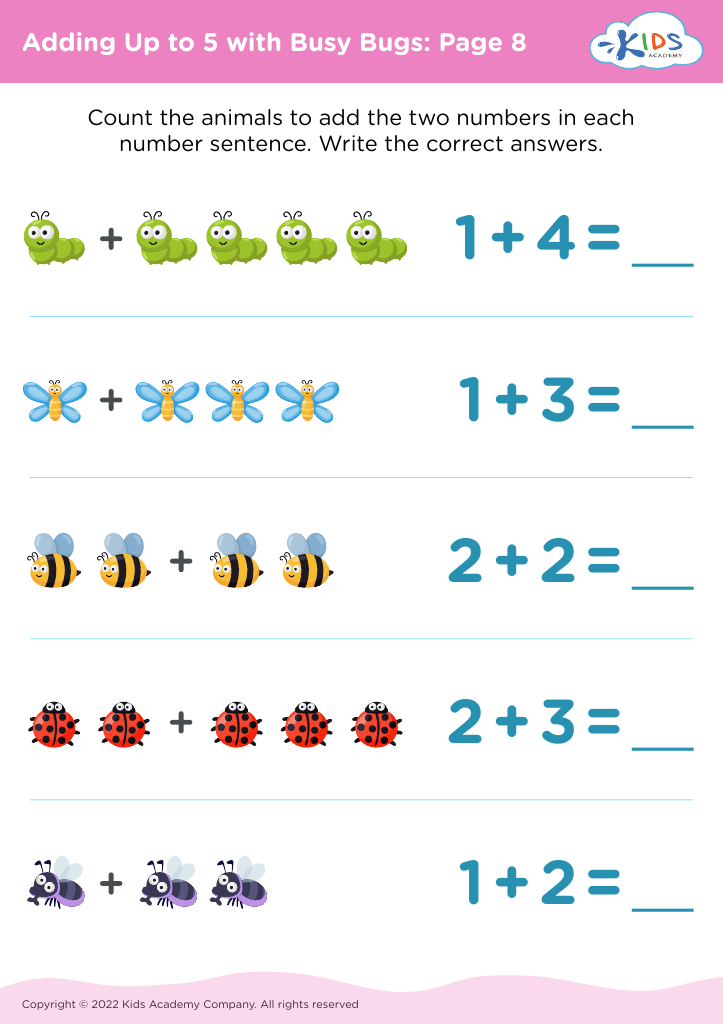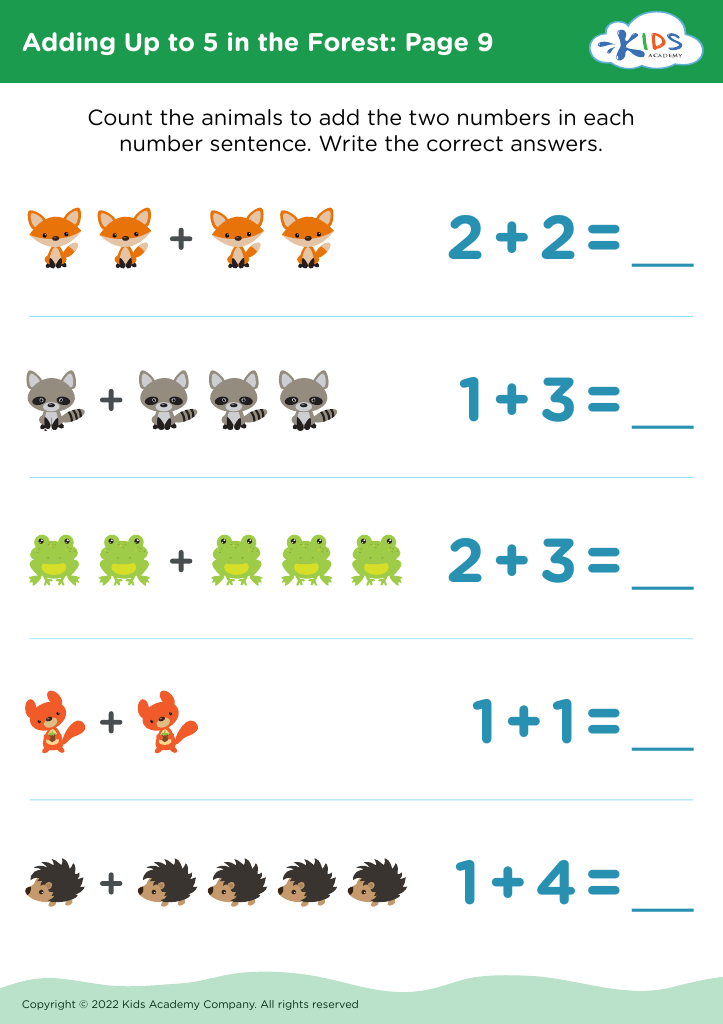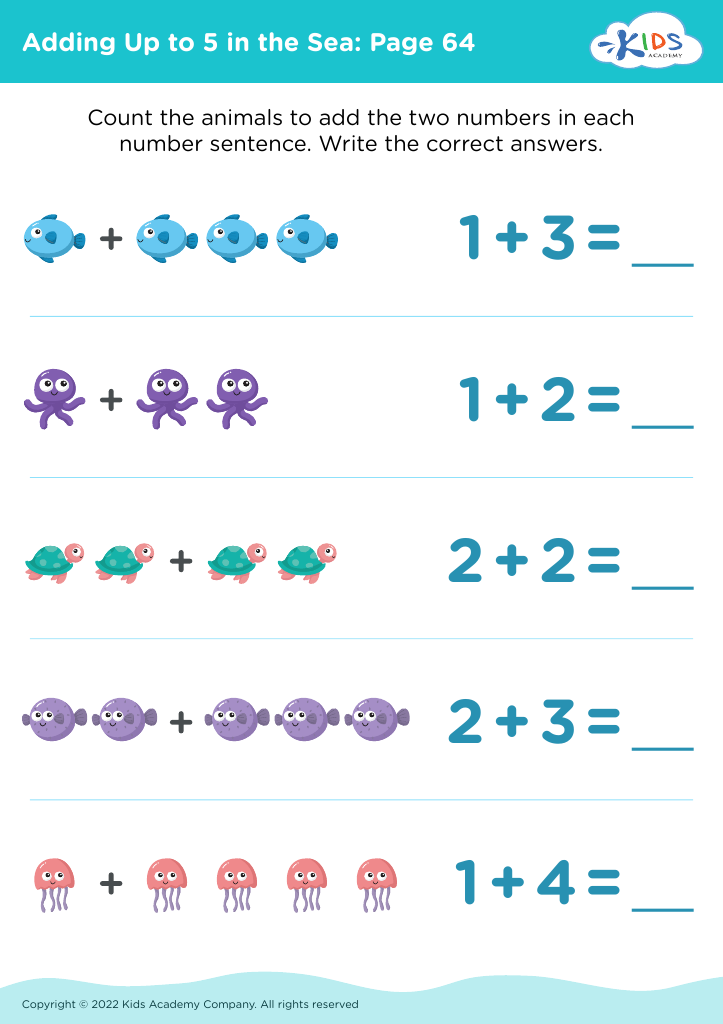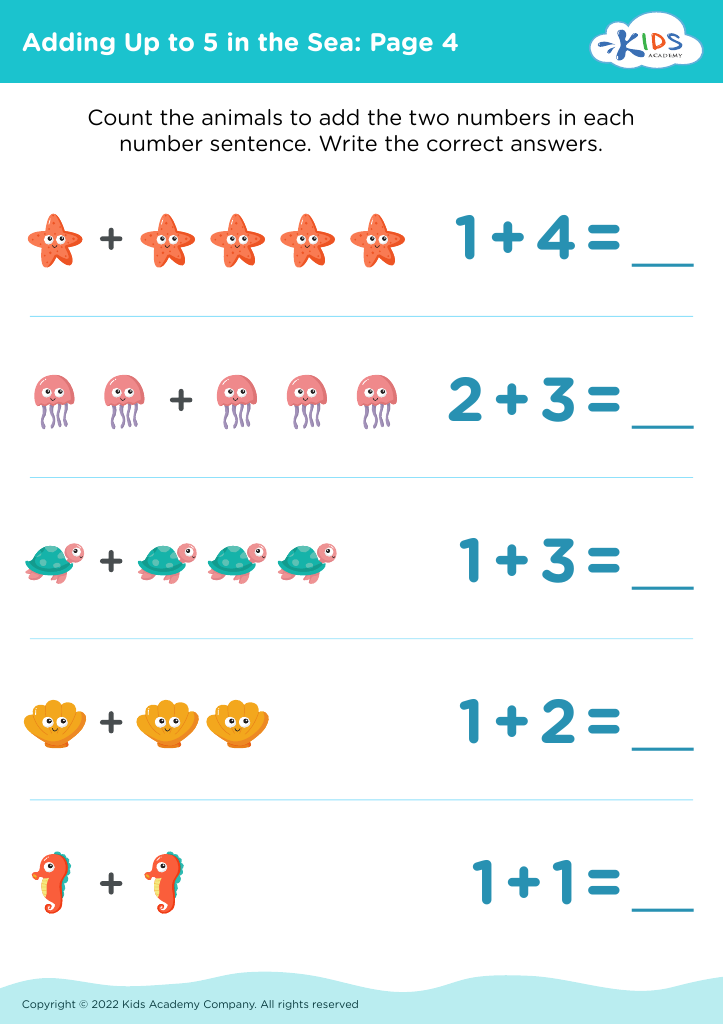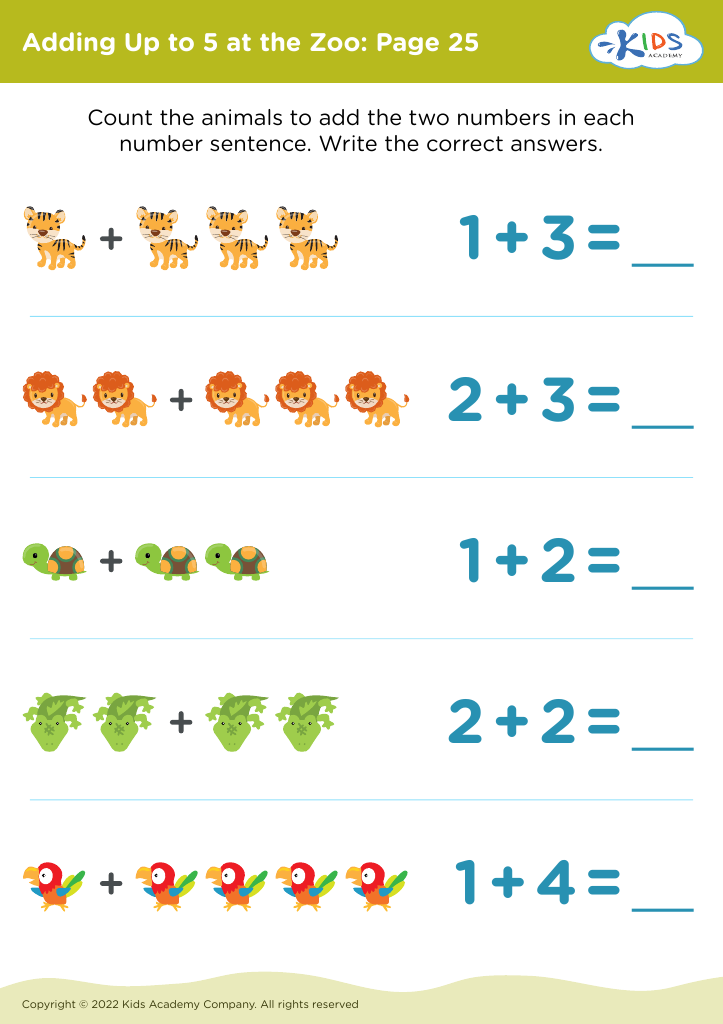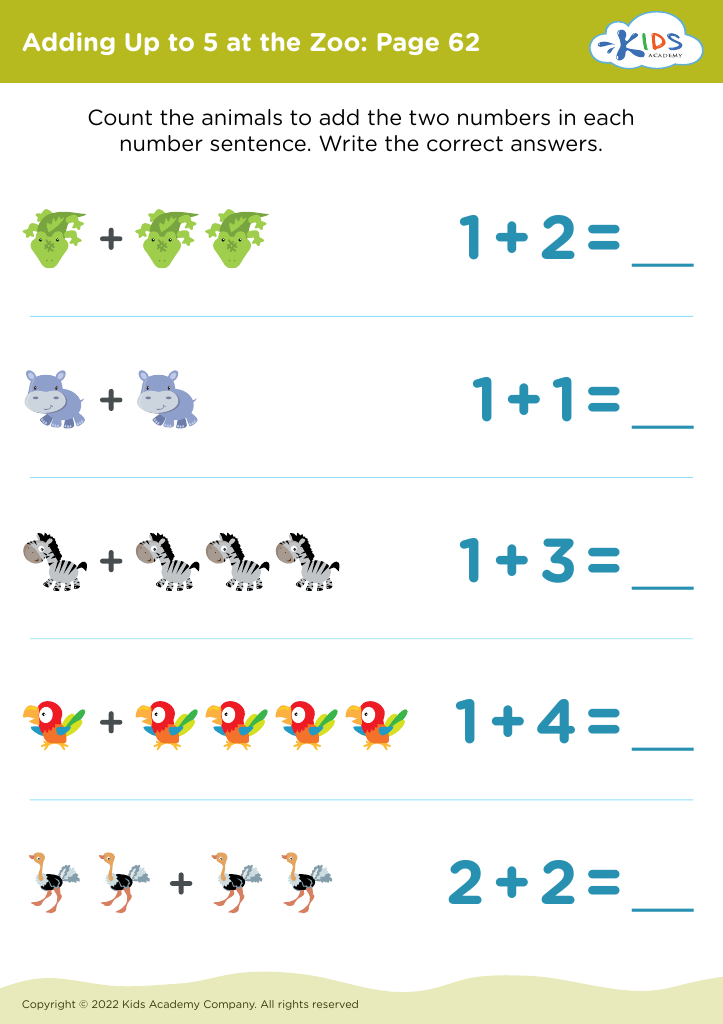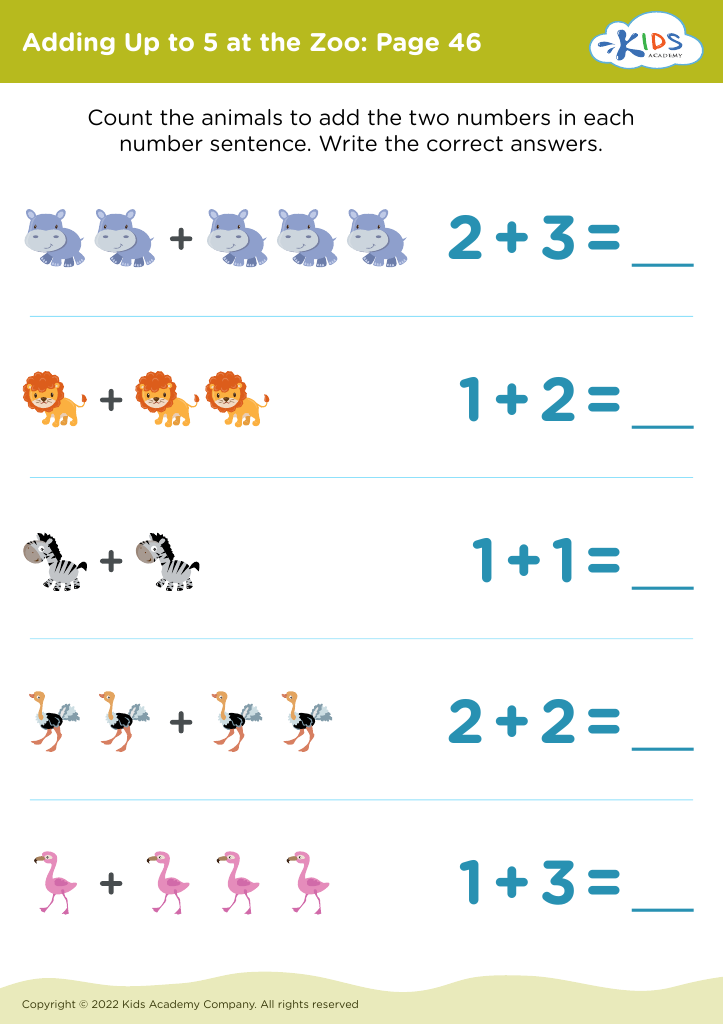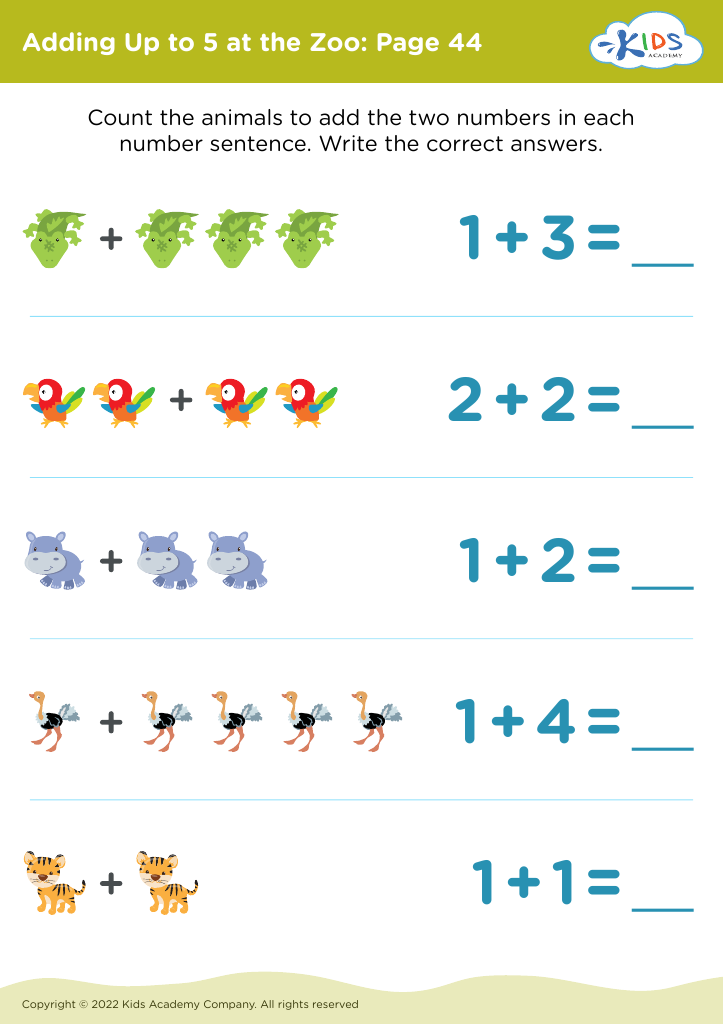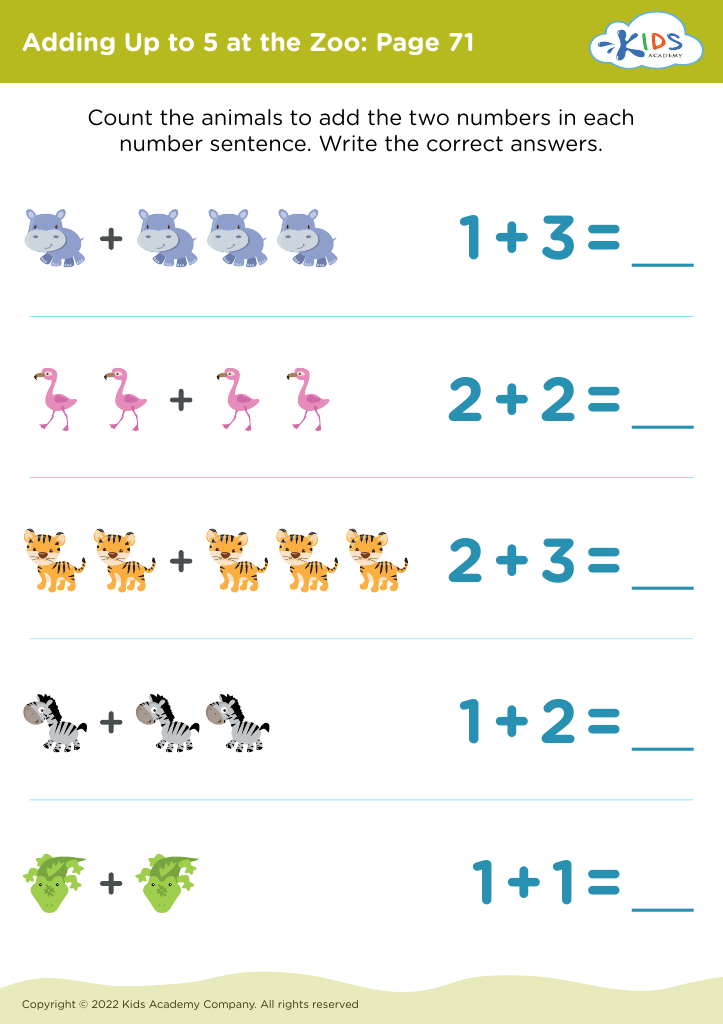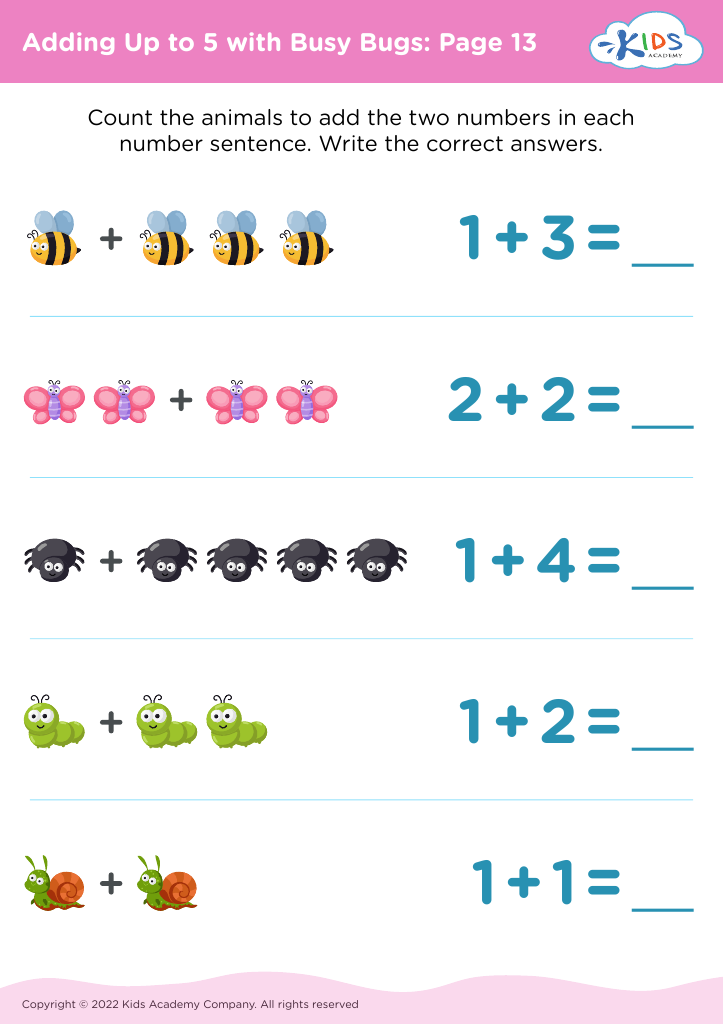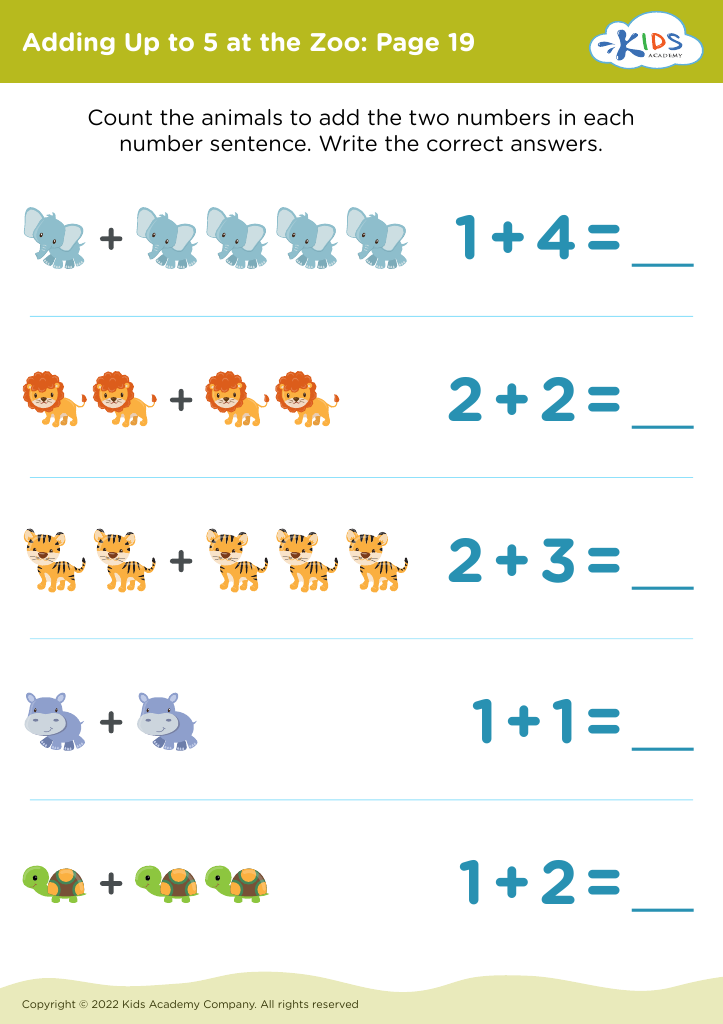Addition skills Addition & Subtraction Worksheets for Ages 4-5 - Page 3
99 filtered results
-
From - To
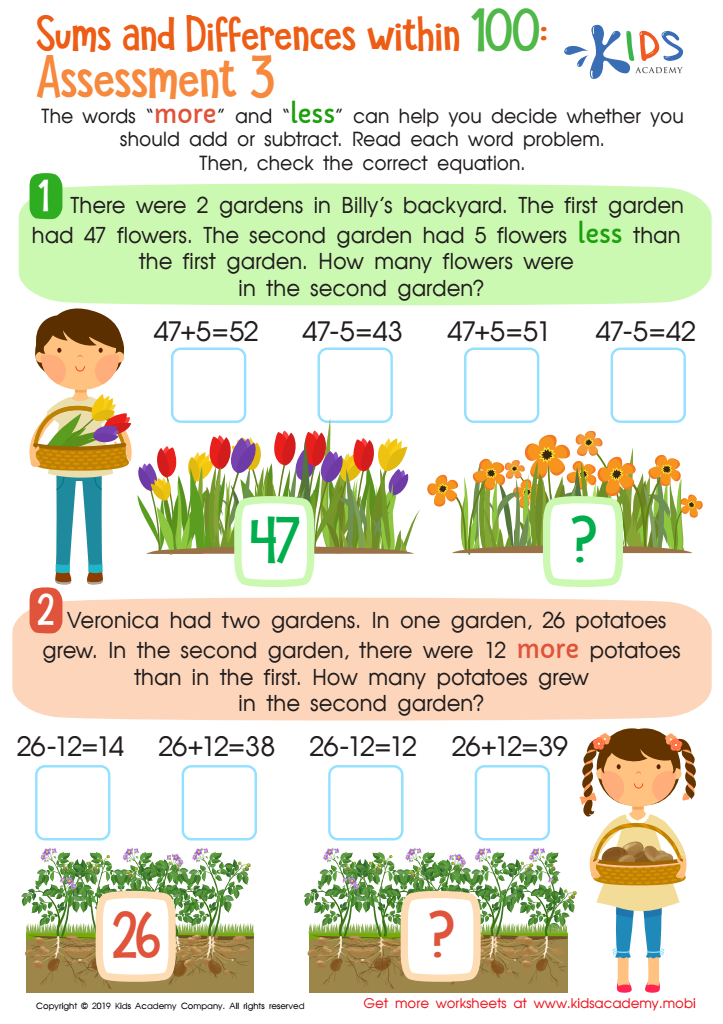

Sums and Differences Within 1 - Assessment 3 Worksheet
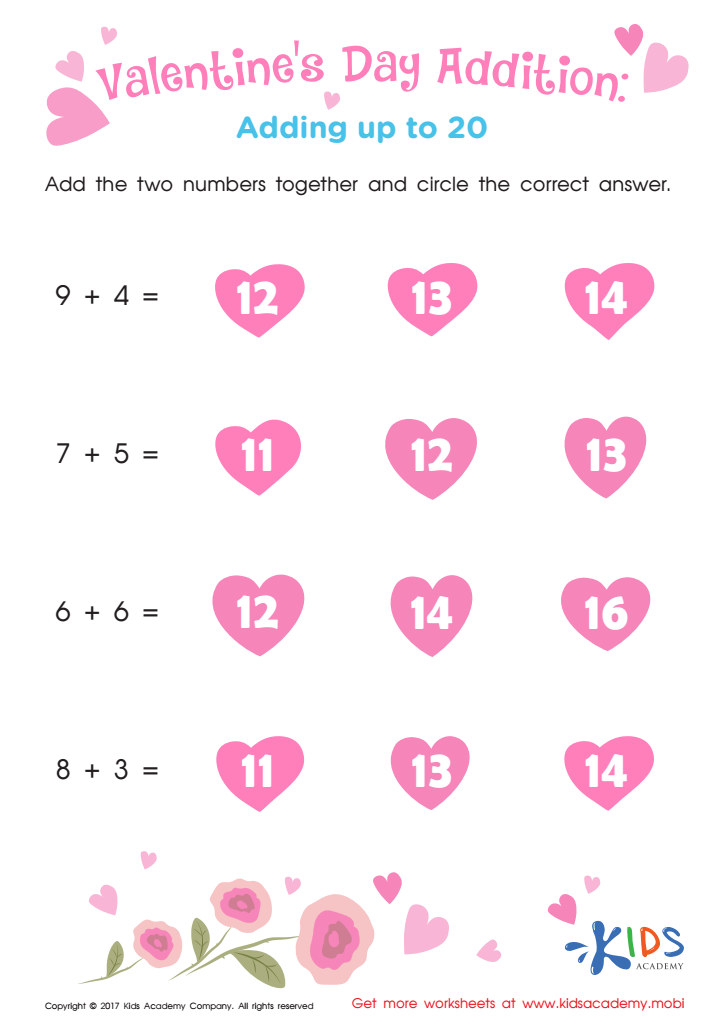

Valentine's Day Addition Worksheet
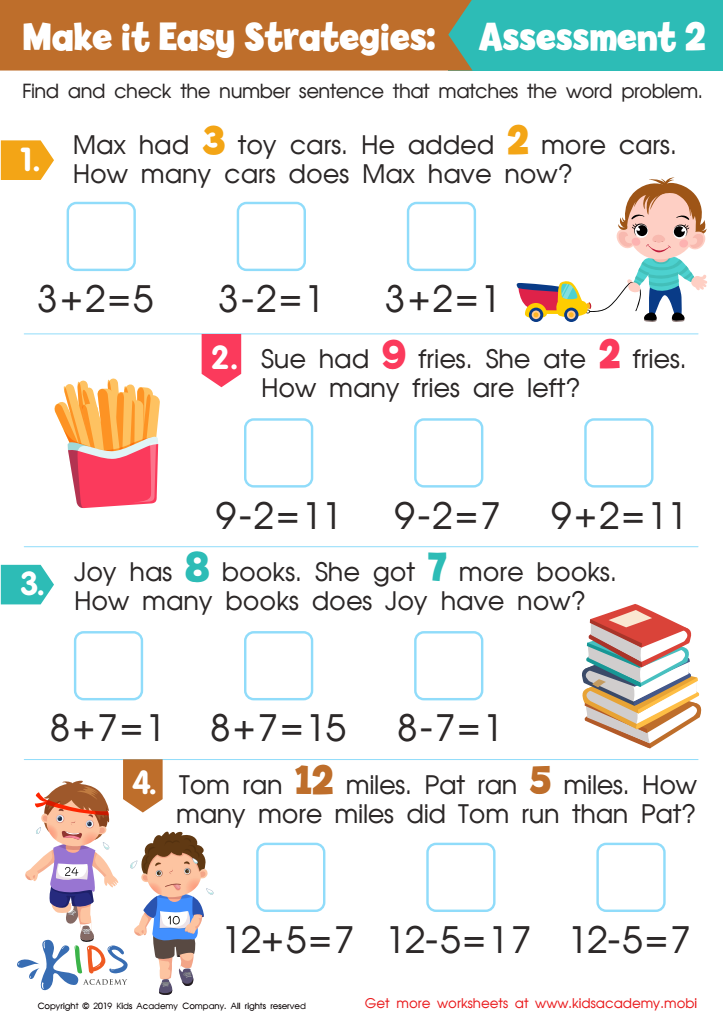

Make it Easy Strategies: Assessment 2 Worksheet
Developing strong addition and subtraction skills at ages 4-5 is critical for several key reasons. First, early math skills serve as the foundation for future academic achievement. When children grasp the concepts of addition and subtraction early, they build a concrete understanding of how numbers work together, which is essential for more advanced math topics they will encounter later.
Second, acquisition of math skills at a young age promotes cognitive development. Learning to add and subtract helps children improve their problem-solving abilities and fosters critical thinking by encouraging them to see relationships and patterns in numbers.
Third, having a firm grip on basic math skills boosts a child's confidence and self-esteem. When children feel competent in something as fundamental as addition and subtraction, their curiosity is encouraged, making them more willing learners in general.
Moreover, integrating math into everyday activities can make learning fun and engaging. Simple, hands-on activities like counting toys, adding apples in a basket, or subtracting socks during laundry time help children appreciate the practical applications of math in daily life.
Lastly, early math skills are linked to overall academic and life success. Studies have shown that children who start school with strong math basics are more likely to succeed not just in math, but across the board. Therefore, investing time and effort in developing these skills reaps lifelong benefits.
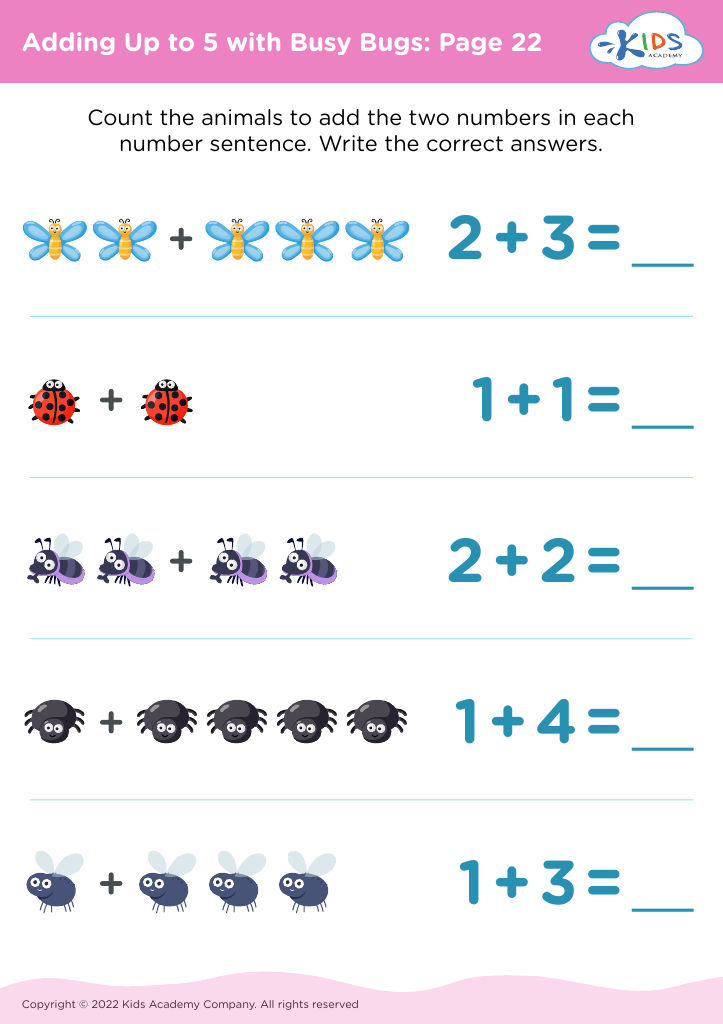

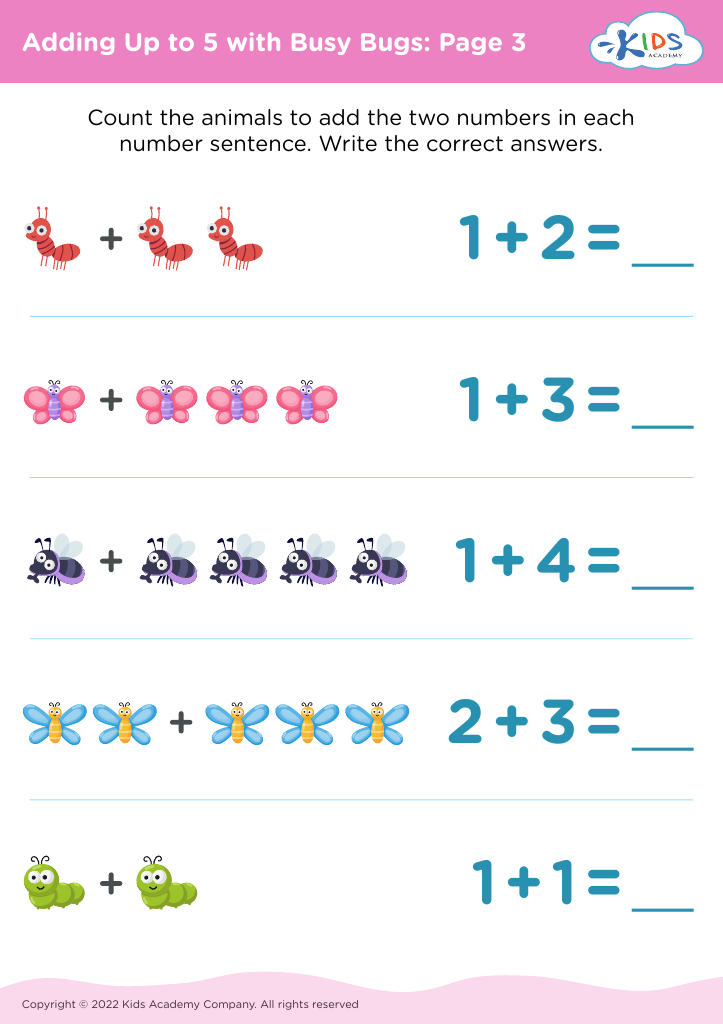
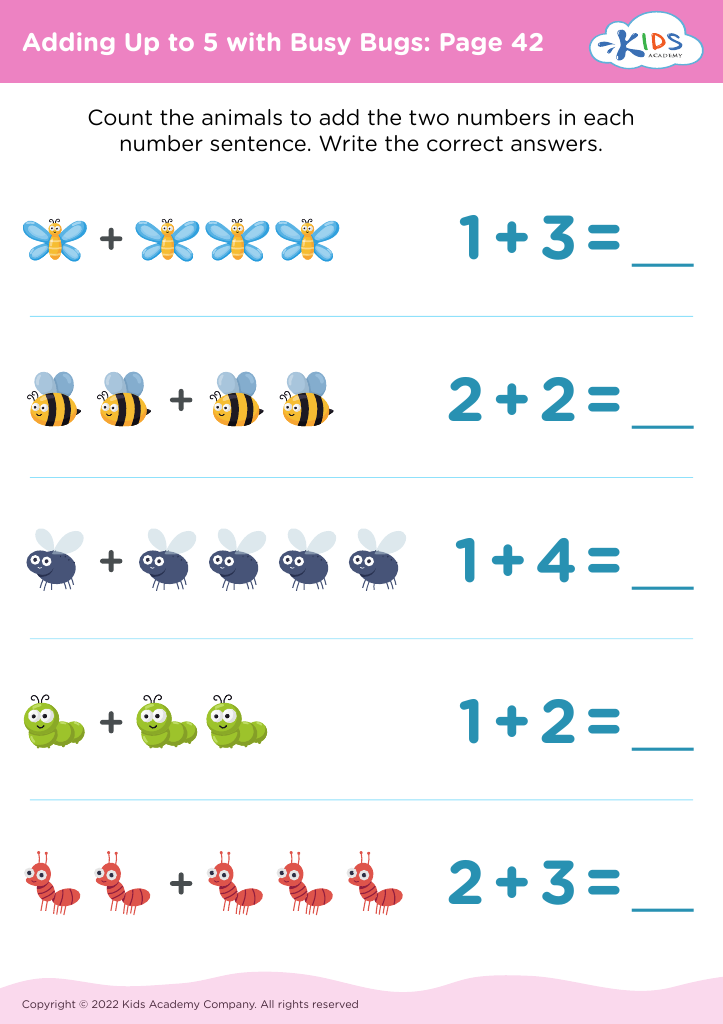
 Assign to My Students
Assign to My Students
